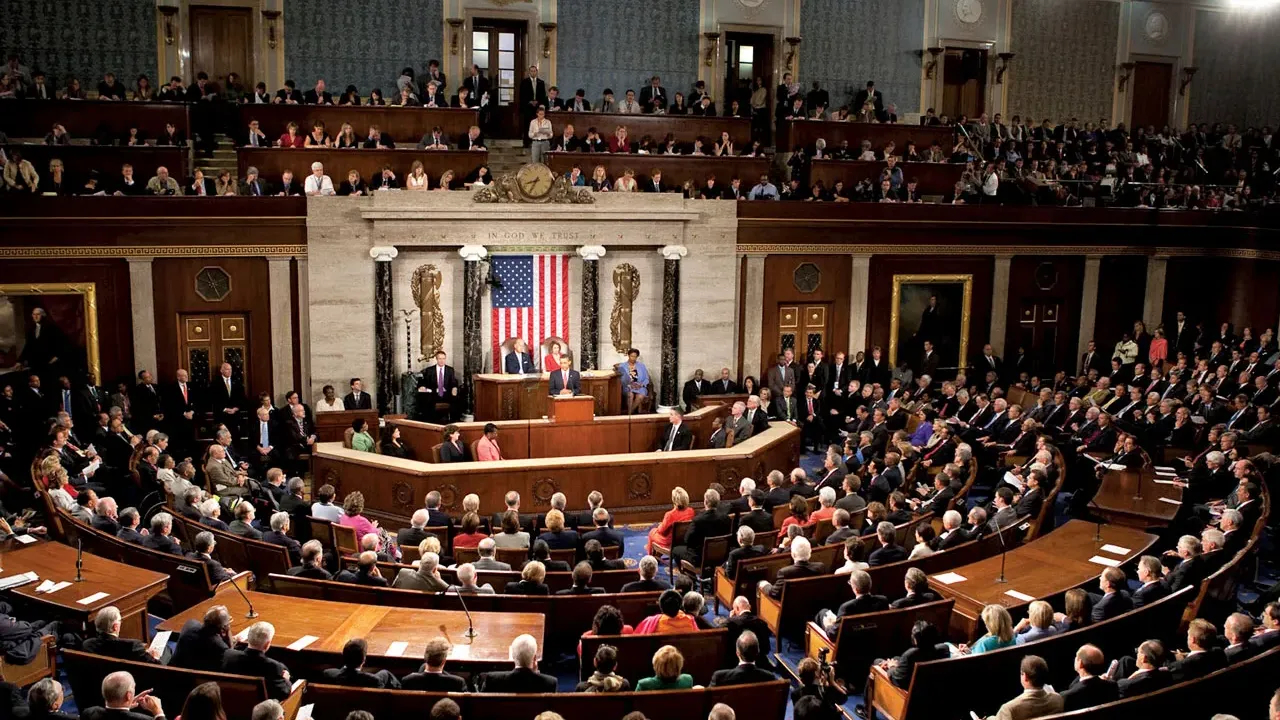The US House Foreign Affairs Committee on Wednesday voted overwhelmingly in favour of advancing a bill that would make it easier for the Biden administration to restrict the export of artificial intelligence systems, citing concerns that China could exploit them to bolster its military capabilities.
The bill, sponsored by House Republicans Michael McCaul and John Molenaar, and Democrats Raja Krishnamoorthi and Susan Wild, would also give the Commerce Department express authority to bar Americans from working with foreigners to develop AI systems that pose risks to US national security.
"Without this legislation, our top AI companies could inadvertently fuel China's technological ascent, empowering their military and malign ambitions," warned committee chair McCaul, on Wednesday.
"As the (Chinese Communist Party) looks to expand their technological advancements to enhance their surveillance state and war machine, it is critical we protect our sensitive technology from falling into their hands," he added.
The Chinese Embassy in Washington is yet to comment on the announcement
The bill is the latest sign that Washington is gearing up to beat back China's AI ambitions over fears Beijing could harness the technology to meddle in other countries' elections, create bioweapons, or launch cyberattacks.
A bipartisan group of senators, including Majority Leader Chuck Schumer, last week called on Congress to approve $32 billion in funding for artificial intelligence research to keep the US ahead of China in the powerful technology.
Reuters reported this month that president Joe Biden's administration is poised to open a new front in its effort to safeguard US AI from China and Russia, with preliminary plans to place guardrails around the most advanced AI models
.
US officials flagged concerns over China's "misuse" of artificial intelligence in their first formal bilateral talks on the issue in Geneva last week.
The bill, approved with 43 votes in favour and only 3 against, would need approval by the full House chamber as well as the Senate before it could be signed into law by Biden.
Latest News
-
TikTok finalises deal to split US operations from Chinese parent
-
Ubisoft scraps several titles and studios to reduce costs
-
Macy's deploys ad server tech to improve media network
-
Tesco announces 10-week trial of new crime reporting platform
-
Jeff Bezos’ Blue Origin announces space-based internet network to rival Musk’s Starlink
-
Starling and Lloyds Bank IT leaders named AI champions by UK government
The future-ready CFO: Driving strategic growth and innovation
This National Technology News webinar sponsored by Sage will explore how CFOs can leverage their unique blend of financial acumen, technological savvy, and strategic mindset to foster cross-functional collaboration and shape overall company direction. Attendees will gain insights into breaking down operational silos, aligning goals across departments like IT, operations, HR, and marketing, and utilising technology to enable real-time data sharing and visibility.
The corporate roadmap to payment excellence: Keeping pace with emerging trends to maximise growth opportunities
In today's rapidly evolving finance and accounting landscape, one of the biggest challenges organisations face is attracting and retaining top talent. As automation and AI revolutionise the profession, finance teams require new skillsets centred on analysis, collaboration, and strategic thinking to drive sustainable competitive advantage.
© 2019 Perspective Publishing Privacy & Cookies









Recent Stories